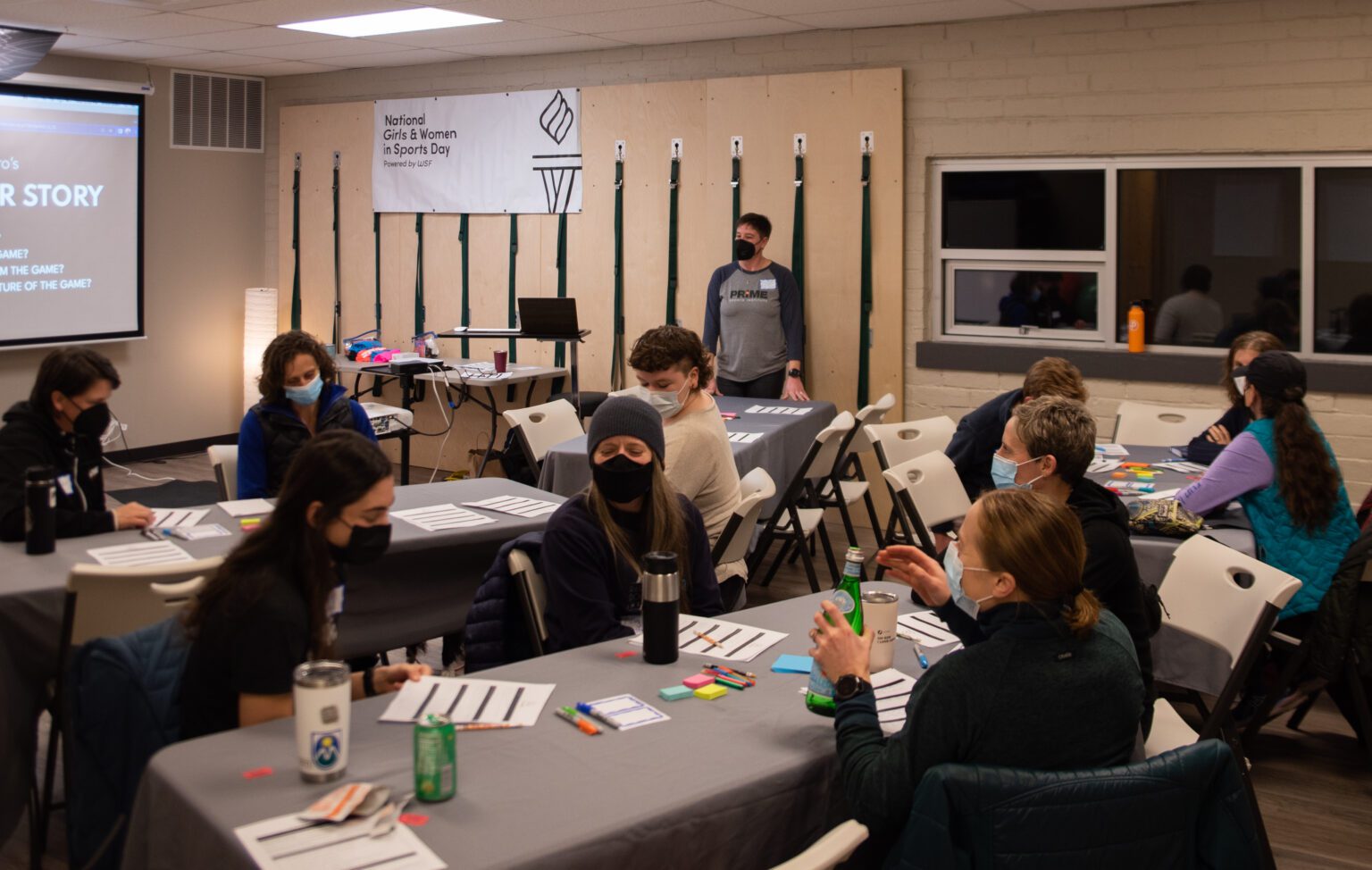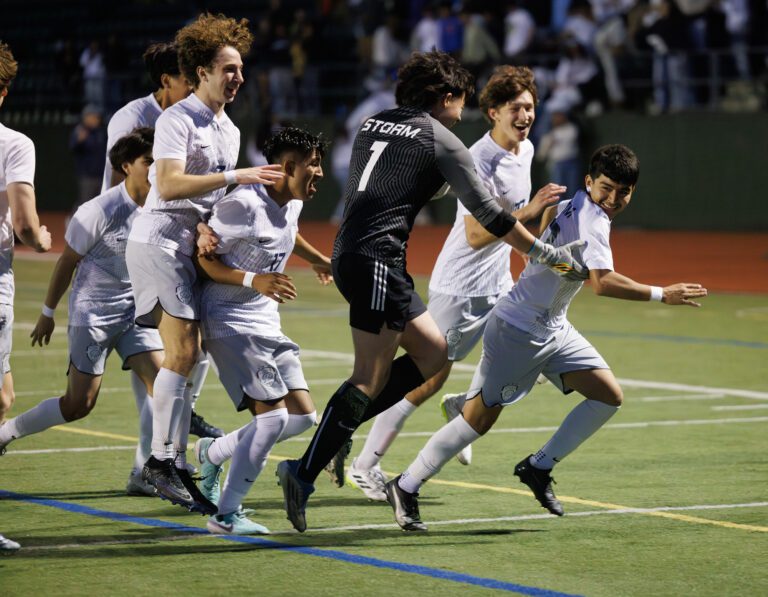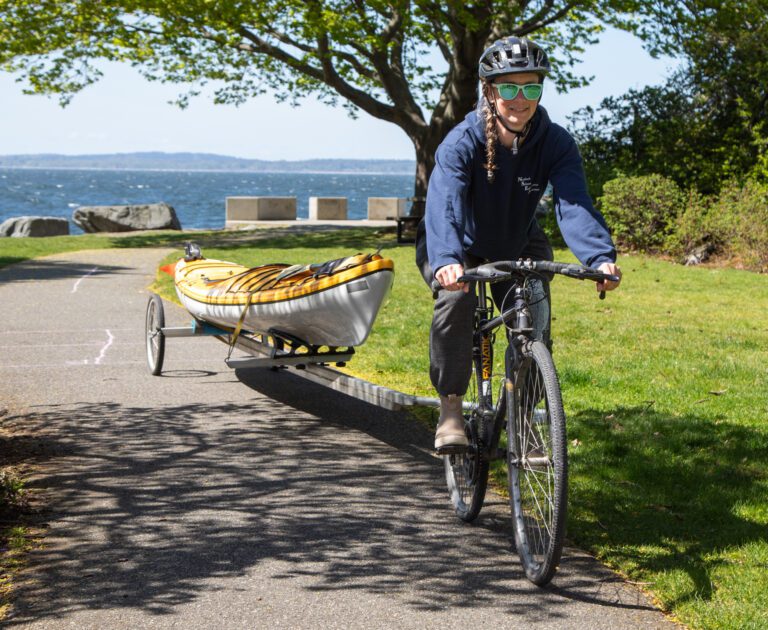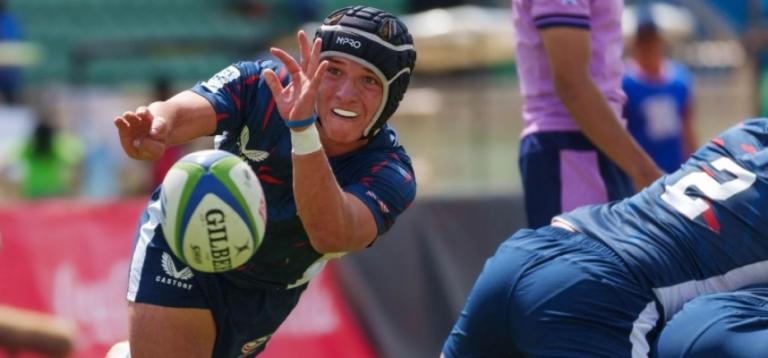Women from around Whatcom County gathered Feb. 1 to connect and discuss opportunities to further gender equality in sports.
The National Girls and Women in Sports Day event at Prime Sports Institute was facilitated by Erica Quam, a former Washington State University head swimming coach and current part-owner and coach at Prime. Quam is also a sports leadership coach at her own business, Find Your Peak Sports.
Quam delivered a presentation on the current fight for gender equality in sports and how coaches can make an impact from the ground up.
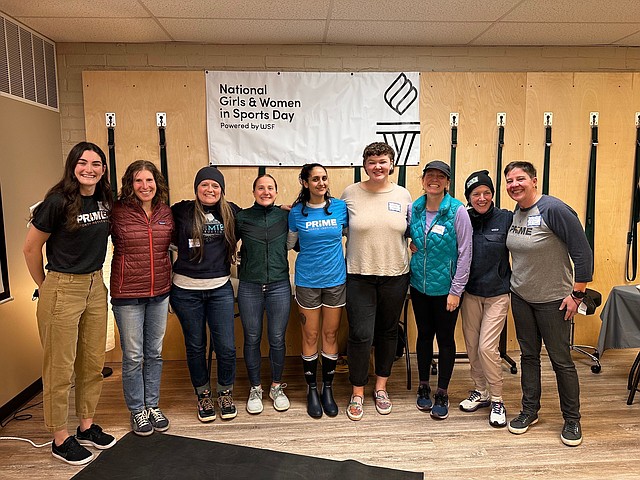 Erica Quam, far right, and the attending coaches pose for a group picture after the event. (Photo courtesy of Erica Quam)
Erica Quam, far right, and the attending coaches pose for a group picture after the event. (Photo courtesy of Erica Quam)
In the 50 years since Title IX was signed into law prohibiting sex-based discrimination at federal education institutions, the opportunities for women to play college sports have nearly tripled, according to a report by the Women’s Sports Foundation.
“We want to do a little bit of celebrating and disrupting,” Quam said. “Many people don’t realize that men’s sports have grown at about the same rate as women’s sports. Women and girls continue to be underrepresented.”
Each year, the Tucker Center releases a report card grading NCAA Division I institutions on the percentage of women’s sports that are coached by women. In the 2021-22 season, only 6.9% of schools received an “A” grade, meaning between 70–100% of women’s sports have a woman as head coach.
The number of women coaching women’s teams has actually decreased from 90% in 1972 to 43% in that most recent study.
This is why it’s important to continue to have conversations about empowering women in sports, Quam said, because, despite the progress that has been made, there is more to be done to achieve gender equality in sports.
“What I find in my work — with a lot of women coaches especially — is we don’t often celebrate all the things that we’ve accomplished. We often move to the biggest challenges. We can identify our challenges like no one’s business,” Quam said.
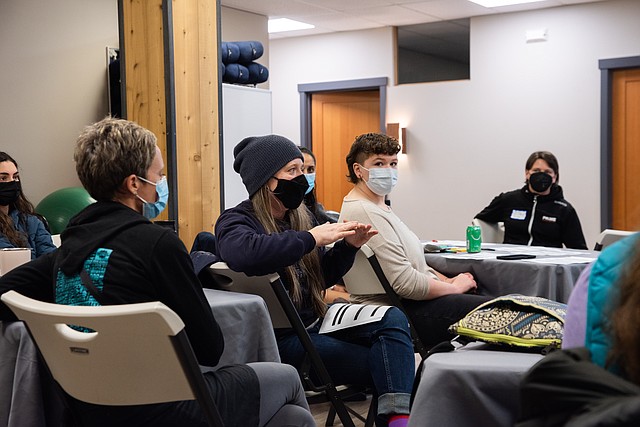 Angi Weston, owner and head coach at Radical Roots Mountain Bike Instruction, shares an experience with the group. She likes to inspire camaraderie in sports that don’t have traditional teams, like mountain biking. (Finn Wendt/Cascadia Daily News)
Angi Weston, owner and head coach at Radical Roots Mountain Bike Instruction, shares an experience with the group. She likes to inspire camaraderie in sports that don’t have traditional teams, like mountain biking. (Finn Wendt/Cascadia Daily News)
Quam introduced a framework she calls “360-degree inventory” to help address the challenges women face in sports. It involves training the brain to learn from previous successes and use those lessons to overcome barriers women face in sports. This strategy works especially well in a team setting where teammates and coaches can draw on each other’s experiences on top of their own.
Angi Weston, owner and head coach at Radical Roots Mountain Bike Instruction, said at the event coaches can create a setting for teams and generate camaraderie, even in individual-oriented sports.
“We address the riders like, ‘Hey, team,’” she said. “I think it doesn’t have to be a traditional team for [women and girls] to benefit from feeling like they’re part of a team.”
Quam said she’s considering making these conversations with coaches a quarterly event.
“I’m feeling energized and inspired,” Quam said after the event. “Coaches have such an opportunity to make a ripple effect … I love having these kinds of gatherings.”

